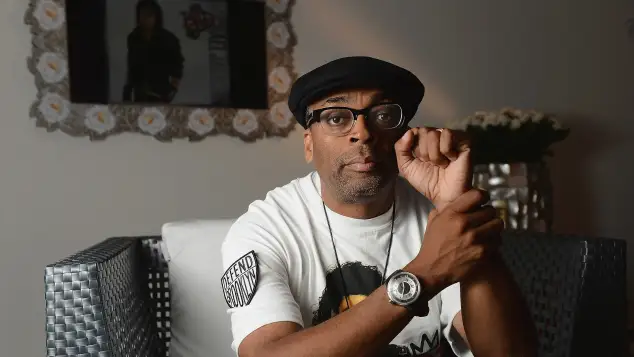Spike Lee has offered his take on what's to be done with film history's intersections with racism and racial inequalities.
Speaking with Moonlight director Barry Jenkins, Lee reflected on Gone with the Wind and The Birth of a Nation. Landmark 1917 epic Birth of a Nation has long been viewed as a troubling glorification of the Ku Klux Klan in the Reconstruction-era United States.
Gone with the Wind, meanwhile, attracted renewed controversy amid the Black Lives Matter movement for its relationship with racial inequalities, slavery, and life in the Civil War-era Antebellum South. Here's what Lee said about the two films.
Spike Lee addresses Gone with the Wind and Birth of a Nation
Jenkins led the video conversation with Lee for American Cinematheque. During the talk, the Do the Right Thing director spoke on his approach to engaging with film history's problematic areas, both in his own films and when he shows them to students.
"We're cinephiles, we love movies, but we also understand how there has been a lot of false narratives in films – and, given the opportunity, we try to shine some light on that darkness that's been out there for many many years," he said.
"If you remember the opening of BlacKKKlansman, it's from one of the greatest shots ever in cinema with Scarlett O'Hara," he explained, referencing his 2018 film's subversive reference to Gone with the Wind. "I think that film [Gone With The Wind] should be seen. I show Birth of a Nation in my class – I also give it historical and social context, while talking about the things D.W. Griffith innovated," Lee clarified.
Spike Lee on board with "context" approach to film history
Lee's comments appear to place him in the camp that says censorship is an ineffective approach to problematic moments in film's 100-plus years of history. As a filmmaker himself, he also addresses such history through creative means in his movies.
Gone with the Wind was at the centre of this debate in recent months, as it was lifted from new streamer HBO Max amid calls for reassessment of problematic depictions of race. The film was later returned to the service with a video introduction that addresses its social, historical, and production contexts.
Lee, the now 63-year-old filmmaker, was in conversation with Barry Jenkins as part of a career retrospective and discussion of his newest film, Da Five Bloods. You can watch their talk below.








